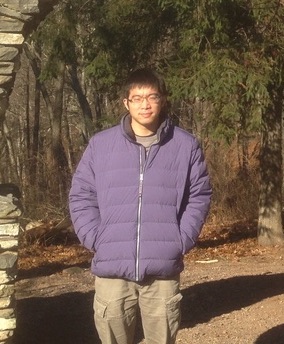
The Experiential Learning Awards are the Center for Career Development’s way to celebrate the tremendous experiences of the students and employers we work with each day! The 2019 Graduate Student Intern of the Year was awarded to Hao-Jan Luh. Here is our conversation about his internship experience.
Tithi Basu: Can you tell me about your Undergraduate and Graduate education to date?
Hao-Jan Luh: For my Undergraduate Degree, I received my B.S in Psychology from National Taiwan University. As a graduate student, I have received my M.Ed.- Learning Sciences and Human Development, Department of Educational Psychology from the University of Washington and my M.A.- School Psychology, Department of Educational Psychology from UConn. I am currently a Ph.D. Candidate- School Psychology, Department of Educational Psychology at UConn.
My research interests are data-based decision making; implementation of interventions/preventions for students in need of social and emotional skill training.
TB: Where were you doing your internship for Summer 2019?
HJL: I started a school psychologist practicum at River Street School (RSS) in Fall 2018. I served at the site twice a week last academic year as a practicum student. I am currently a full-time intern at the school.
TB: How did you find this internship?
HJL: School psychology students complete practica and internship as part of the program requirement at UConn. After completing practica across K-12 schools, I reached out to the practicum coordinator at UConn. After listening to my training needs and interests, she connected me with my current internship supervisors at RSS.
TB: Describe your role in your internship. What did your daily tasks consist of?
HJL: As a school psychologist intern, I try to apply my academic training to my internship responsibilities, including administering various assessments, writing psychoeducational reports, providing consultation, as well as implementing academic and behavioral interventions. For example, I have used a variety of assessments to evaluate students’ cognitive abilities and adaptive behavior skills. Informed by the assessment results, I have worked with other school professionals to implement evidence-based interventions that build on the students’ strengths.
TB: What new knowledge or skills have you gained from participating in your internship?
HJL: As a doctoral student, I have sought opportunities to develop clinical expertise. Through my internship, I have gained deeper, firsthand knowledge about behavioral, communicative, and neurological disorders. My supervisors have provided me with supervision regarding autism, including the diagnosis tools and interventions for children with autism. In addition, I have gained experience in collaborating with a multidisciplinary clinical team at RSS, including speech-language pathologists, occupational therapists, behavior analysts, special education teachers, and a pediatric neurologist. I have had the opportunity to see how they work with the students and other team members.
TB: What are some challenges that you have had to overcome to reach this point in your graduate career?
HJL: As an international student, I have faced challenges related to language and cultural barriers, financial difficulties, as well as restrictions on my student visa. Luckily, I have received support from faculty and supervisors to address some of the challenges. I have also published an article on related topics. Additionally, a school psychologist has many roles and functions in school settings, which can be rewarding and challenging. Training at UConn has also helped me address some challenges. However, with the support from supervisors and my cohort, I have been able to overcome many of the challenges.
TB: How has this internship prepared you for pursuing your career of choice?
HJL: I am planning to enter academia in School Psychology after graduation. Both research experience and clinical skills are important for my future career. My internship experience has helped me develop my research questions and expertise. In addition to research abilities, academia in School Psychology also values one’s clinical skills and expertise. RSS has provided me with the practical experience in assessment, intervention, and consultation.
TB: What advice would you give to current UConn graduate students who might be interested in pursuing similar internships?
HJL: I would suggest that they collect as much information as possible about the sites that they are interested in. For example, they could visit the websites, contact previous interns, and reach out to faculty members that might be familiar with the internship site. I would also suggest that they evaluate their training and skills and see how the internships may be helpful for their careers. After they obtain the internship opportunities, it might also be helpful to discuss the expectations both their supervisors have for them and they have for the sites. Planning how to meet the expectations is going to be instrumental in being successful at any internship.
Note: This interview has been edited for brevity and clarity.
